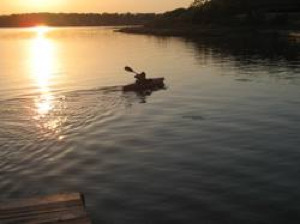 The Coca-Cola Company pledged to replace the water it uses in its global beverage operations, and that of its franchise bottlers, as part of a $20 million commitment to the World Wildlife Fund launched to help conserve seven of the world’s most important freshwater river basins. "Our goal is to replace every drop of water we use in our beverages and their production," said the Company’s CEO, E. Neville Isdell…
The Coca-Cola Company pledged to replace the water it uses in its global beverage operations, and that of its franchise bottlers, as part of a $20 million commitment to the World Wildlife Fund launched to help conserve seven of the world’s most important freshwater river basins. "Our goal is to replace every drop of water we use in our beverages and their production," said the Company’s CEO, E. Neville Isdell…
The announcement this week at the annual meeting of WWF in Beijing, begins a multi-year partnership that seeks to achieve more efficient water management in Coca-Cola’s operations and global supply chain, and to reduce the Company’s carbon footprint.
"We are focusing on water because this is where The Coca-Cola Company can have a real and positive impact," said Isdell. "For us that means reducing the amount of water used to produce our beverages, recycling water used for manufacturing processes so it can be returned safely to the environment, and replenishing water in communities and nature through locally relevant projects."
"The Company is stepping into new and uncharted territory, and we look forward to working together to meet the bold commitments they have made to conserving fresh water supplies worldwide," said James Leape, Director General of WWF International.
The Company’s pledge to replace the water it uses has three core components: reduce, recycle and replenish.
Reduce: The Coca-Cola Company will set specific water-efficiency targets for global operations by 2008 to be the most efficient user of water within peer companies. These targets will build on improvements already made by The Coca-Cola Company and its bottlers in water-use efficiency over the past five years, a period where total water use has decreased by 5.6 percent while sales volume has increased by 14.6 percent. In that same period, water efficiency improved 18.6 percent.
Recycle: The Company will align its entire global system in returning all water that it uses for manufacturing processes to the environment at a level that supports aquatic life and agriculture by the end of 2010. While water is treated currently to comply with local regulations and standards, the company has wastewater treatment standards that are more stringent than applicable standards in many parts of the world. Nearly 85 percent of Company and independent bottling operations are aligned with the Company’s higher standards, and the Company pledged to align 100 percent of its entire global system.
Replenish: The Company will expand support of healthy watersheds and sustainable communities to balance the water used in its finished beverages. Engagement will include a wide range of locally relevant initiatives, such as watershed protection, community water access, rain water harvesting, reforestation and agricultural water use efficiency. Numerous projects are already underway: the Company has community and watershed programs in 40 countries focused on education and awareness, productive water use, watershed management and water supply, sanitation and hygiene; the Company has some 300 rainwater harvesting structures throughout its global operations; and, last week, in Brazil, The Coca-Cola Company and FEMSA announced a partnership with SOS Mata Atlantica to reforest over three million trees on 3,000 hectares of Atlantic rainforest. Unlike carbon, the concept of balancing water use is not well defined, and WWF, The Coca-Cola Company and its bottling partners will work together to measure the impact of these activities on water availability.
In recognition of the impacts on water resources from the "embedded" water in agricultural commodities and packaging, WWF and TCCC will work together to encourage efficient water use in the Company’s supply chain, beginning with sugar cane. Work with WWF’s Better Sugar Initiative has already demonstrated the Company’s commitment to steward its supply chain’s use of water. Measurable targets will be set for improvements of water use, in time, with its agricultural partners.
"Society is just beginning to understand the world’s water challenges," continued Isdell, "No single company or organization has all of the answers or holds ultimate responsibility, but we all can do our part to conserve and protect water resources. Our Company will need time and cooperation from our bottlers, our suppliers and our conservation partners to accomplish the goal of replacing the water we use. We will be open about our progress and engage others to better understand what it takes."



















